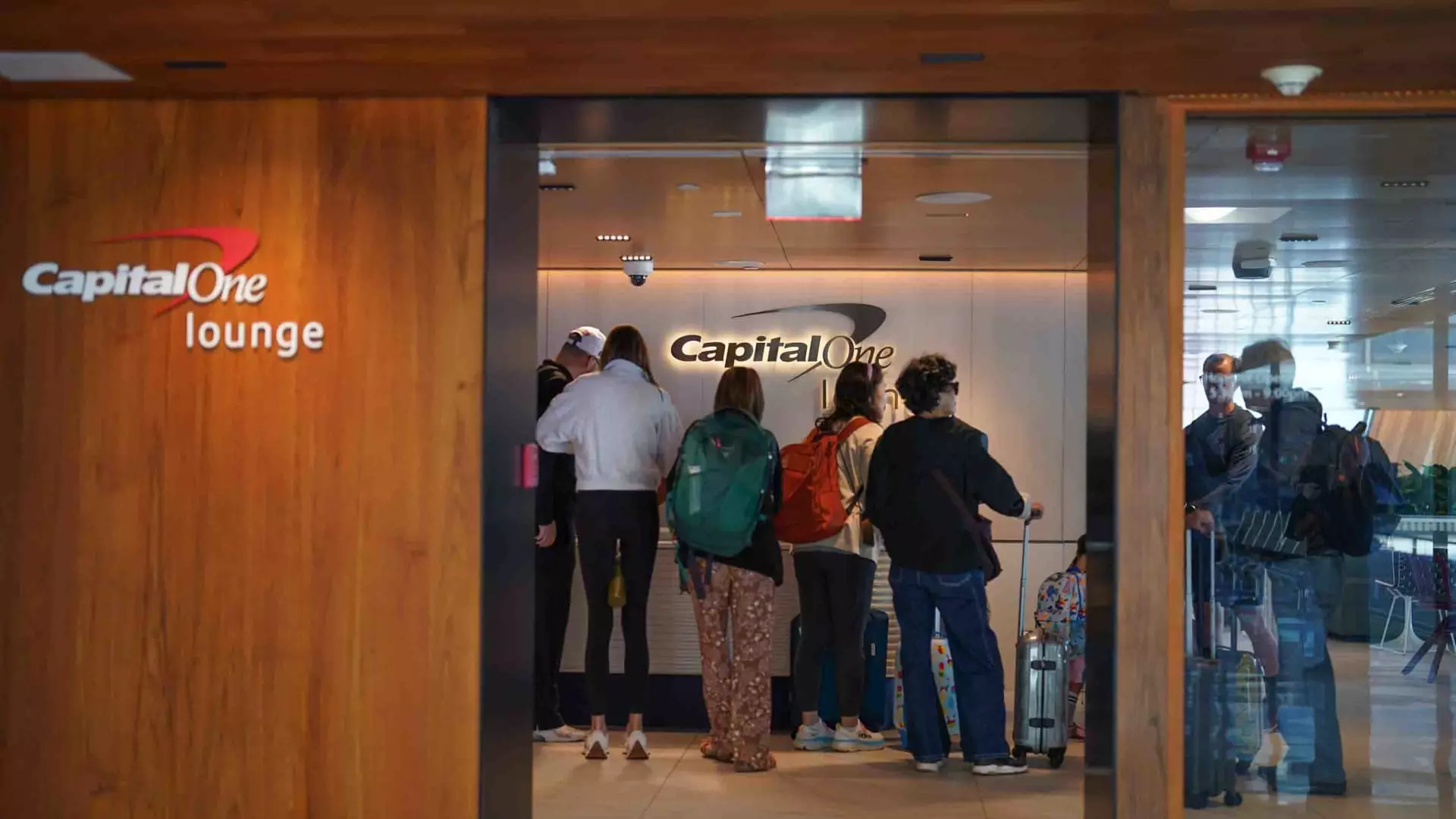The allure of airport lounges has historically been the promise of solace amid the chaos of modern travel. However, as the travel landscape evolves, this promise is increasingly becoming a privilege that only the affluent can afford. With recent announcements from Capital One, the reality that families and budget-conscious travelers face is starkly clear: access to the tranquility of airport lounges is morphing into an elite experience distinguished by hefty fees rather than inclusive comfort. Starting in February, Capital One’s Venture X and Venture X Business cardholders will be required to fork over $125 annually for every additional authorized user to join them in these spaces, as well as pay for any guests—$45 for adults, $25 for those under 17. What used to be a relaxing perk is becoming a costly endeavor that alienates everyday Americans from the luxury they once had access to.
The Unraveling of Community in Lounges
The recent restrictions reflect a troubling trend: the commodification of communal spaces designed for rest and respite. By limiting access to only those who can afford it—or those willing to splurge to meet increasingly unrealistic expenditure expectations—Capital One is, arguably, erasing the very essence of what airport lounges should represent: a welcoming oasis for all travelers. The need to maintain an “exclusive” customer experience introduces a chilling irony; in the quest for exclusivity, you lose the community spirit. It’s the average traveler who will ultimately suffer, as financial barriers slowly dismantle the welcoming atmosphere that lounges once radiated.
It’s easy to understand the rationale behind the move—crowding in lounges has become an uncomfortable reality, with customers often forced to wait for entry, making their exclusive experience feel more like a tedious endurance test. Yet, rather than embracing new strategies that encourage inclusivity and accessibility, Capital One and other industry giants appear to be equating fewer bodies with better experiences. This dangerous mindset harks back to an outrageous notion: comfort must come with a price tag that only the elite can afford.
The Illusion of Choice: A Trend Among Competitors
The decisions made by Capital One resonate deeply in an industry known for its unfurling layers of elitism. American Express and JPMorgan Chase have adopted similar measures that veil exclusivity as a pursuit of quality, leading to an alarming conformity in the approach to lounge access. The barriers placed at the entrance of these lounges now serve to create an illusion of choice, with cardholders believing they can secure premium experiences the more they spend, while real choice continues to slip away. Instead of adding more access points for travelers to find refuge, the experience is steeped in a sinister challenge among corporations to create more barriers to entry—barriers constructed around an inability to handle demand for luxury.
The financial elitism evident in these moves reminds us that the ideals surrounding travel—of adventure, community, and mutual respect—are increasingly overshadowed by corporate agendas cloaked in the guise of ‘improved experiences.’ Unfortunately, more often than not, what gets lost in the rush to profit is the very spirit of travel itself, which should be about exploring the world freely and enjoying moments of respite without seeking a side of bank-breaking fees.
Where Do We Go From Here?
Navigating the realities of modern air travel in a landscape defined by harsh restrictions and high costs feels akin to stumbling through a maze designed for the wealthy elite. As companies respond to overcrowded lounges by seeking to limit access, one can’t help but feel the corporatization of these communal spaces devalues travel for those who cherish its intrinsic joys. With increasing barriers from credit card companies, airlines, and travel networks, the question lingers: can we return to the days when the airport lounge was a place for all, not just a select few?
As the industry marches towards premium charges and financial exclusivity, a movement towards diluted accessibility is unmistakably becoming the norm. Ultimately, it’s the travelers who face the heaviest burden; that by prioritizing profit and exclusivity, corporations risk losing their humanity—an unforgivable sin in an industry built on the connective joys of travel.



Leave a Reply